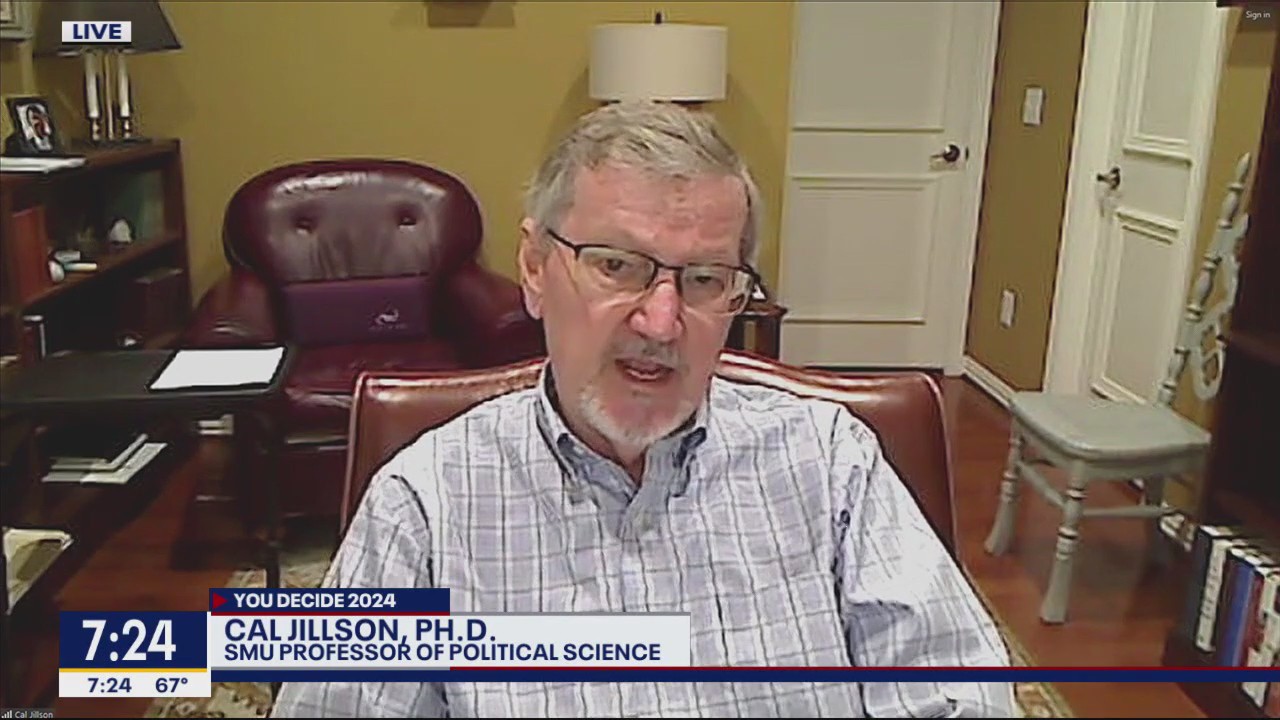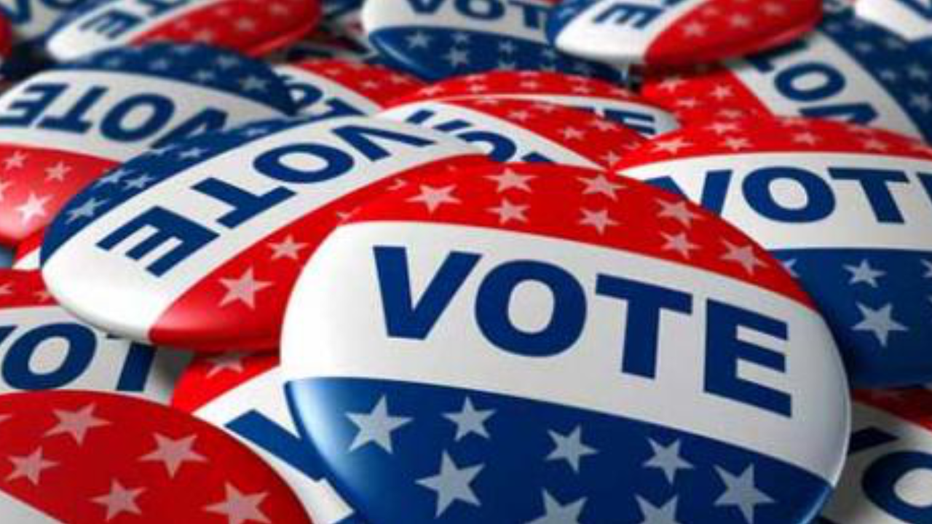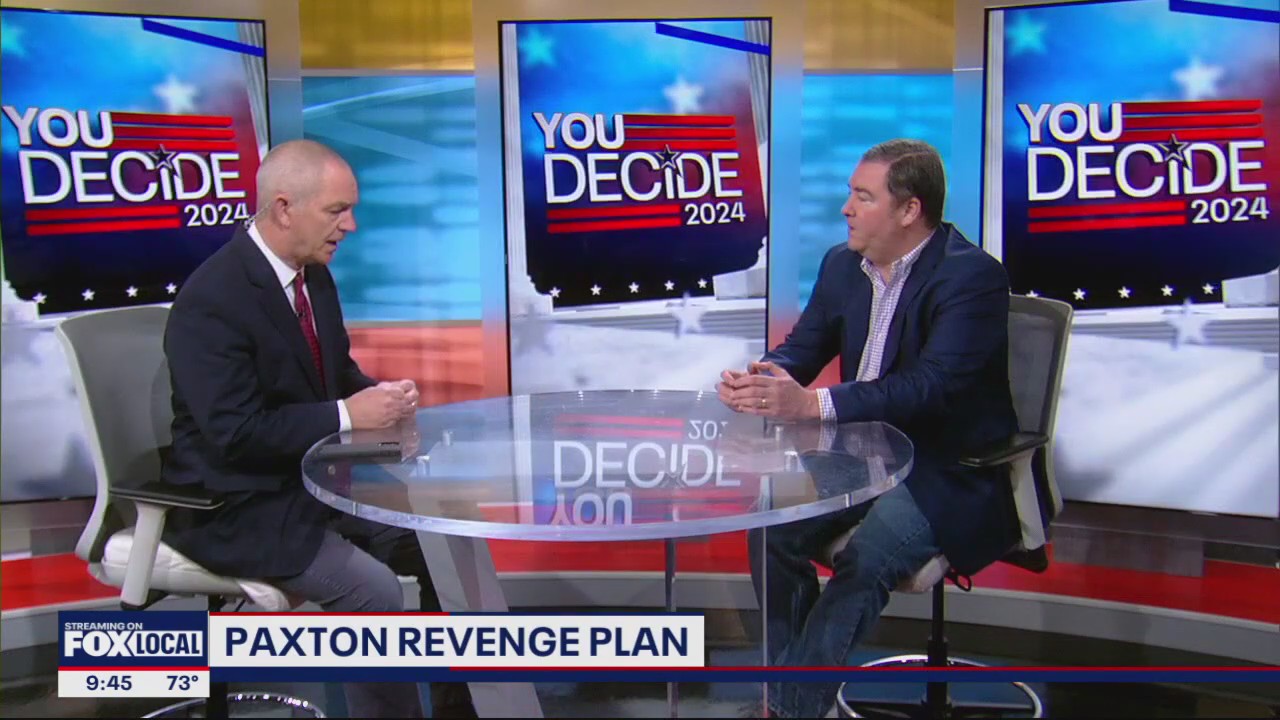Early voting in Texas down from 2020 primary. Here's why.

Republicans deeply divided heading into Texas Primary
Tuesday's primary election could change the future for Republicans in Texas. Political science professor Cal Jillson joined Good Day to talk about the deep divide in the party. He says Gov. Greg Abbott and Attorney General Ken Paxton are making the election about school vouchers and Paxton's impeachment trial.
DALLAS - Early voting turnout for this year’s Texas Primary election was lower than the turnout for the last presidential primary.
About 10% of registered voters in Texas cast a ballot between Feb. 20 and last Friday.

That’s about 1.8 million people. But it’s 200,000 fewer than for the 2020 presidential primary.
SMU Professor of Political Science Cal Jillson said he’s not surprised considering the primary races for president in both parties are virtually over this year with President Joe Biden and former President Donald Trump being the presumed nominees.
"We’re a little bit down overall from 2020 but I think in 2024 that turnout will come back up," he said.
The early voting turnout was slightly higher for Republicans and lower for Democrats.
Jillson believes that’s because of the deep divide in the Republican party in Texas right now.
"[They] have the Republican electorate more energized than the Democrats are. The Democrats have the primary for president and they have the support for [Colin] Allred or [Roland] Guiterrez, but there aren’t that many other races that excite them," he said.
For Republicans, the primaries have pitted Gov. Greg Abbott against State Attorney General Ken Paxton in many cases.
Abbott is campaigning for House members who supported his school voucher plan, while Paxton is backing many challengers in hopes of purging House members who voted to impeach him last year.
"It’s not uncommon for a political party that has enjoyed a big majority for now decades – today it’s the Republican party but 60 or 70 years ago the Democrat party – to break up into factions trying to control that majority and control its policy results. And so, we’ve seen this before in Texas but not recently," Jillson said.

Texas Primary 2024: What to watch for
The presidential candidates are all but decided, but there is plenty of intrigue across several races in the Texas primary. The FOX Texas Trio break down the civil war in the Republican Party, a battle for vouchers and attorney general Ken Paxton's attempt at revenge for his impeachment.
Jillson said there are about 20 incumbents that Abbott has come out against and about 20 incumbents Paxton is against.
"I think most of the incumbents survive. But some of them may well go down and be replaced by someone further to the right, making the whole legislature a little bit more conservative," he said.
As for the Democrats, the most-watched Texas race is for the U.S. Senate. Voters have to decide who will face Sen. Ted Cruz in the fall.
"The polling suggests that it may actually not go to a runoff and Colin Allred was at 52 or 53%. If he’s over 50%, he wins it outright and goes directly to the general election," Jillson said. "But Roland Guiterrez, a Texas Senator from the Uvalde area, is running second in that and if he can hold Allred below 50% there would be a runoff. From Allred’s perspective, he doesn’t want that because he wants to hoard his money for the general election and begin training his fire on Ted Cruz right away."
The lower voter turnout may also be part of a national trend of apathetic voters who really don’t want to see Biden or Trump in the White House.
Featured
Supreme Court restores Trump to ballot, rejecting state attempts to ban him over Capitol attack
The Supreme Court on Monday restored Donald Trump to 2024 presidential primary ballots, rejecting state attempts to hold the Republican former president accountable for the Capitol riot.
"There are a lot of people, 70% or better of the general electorate who wish they had other choices. But you know, I wish I was richer and I’m not. So, you know, you take the choices that you have. And that may depress turnout a little bit. But both sides will be making the case that it’s a choice. It’s them or us and you’ve got to come out and vote for us," he said.
Jillson believes ultimately that will convince reluctant voters to head to the polls in November.
"We had high turnout in Texas the last several cycles. I think we’re looking at that again," he said.


